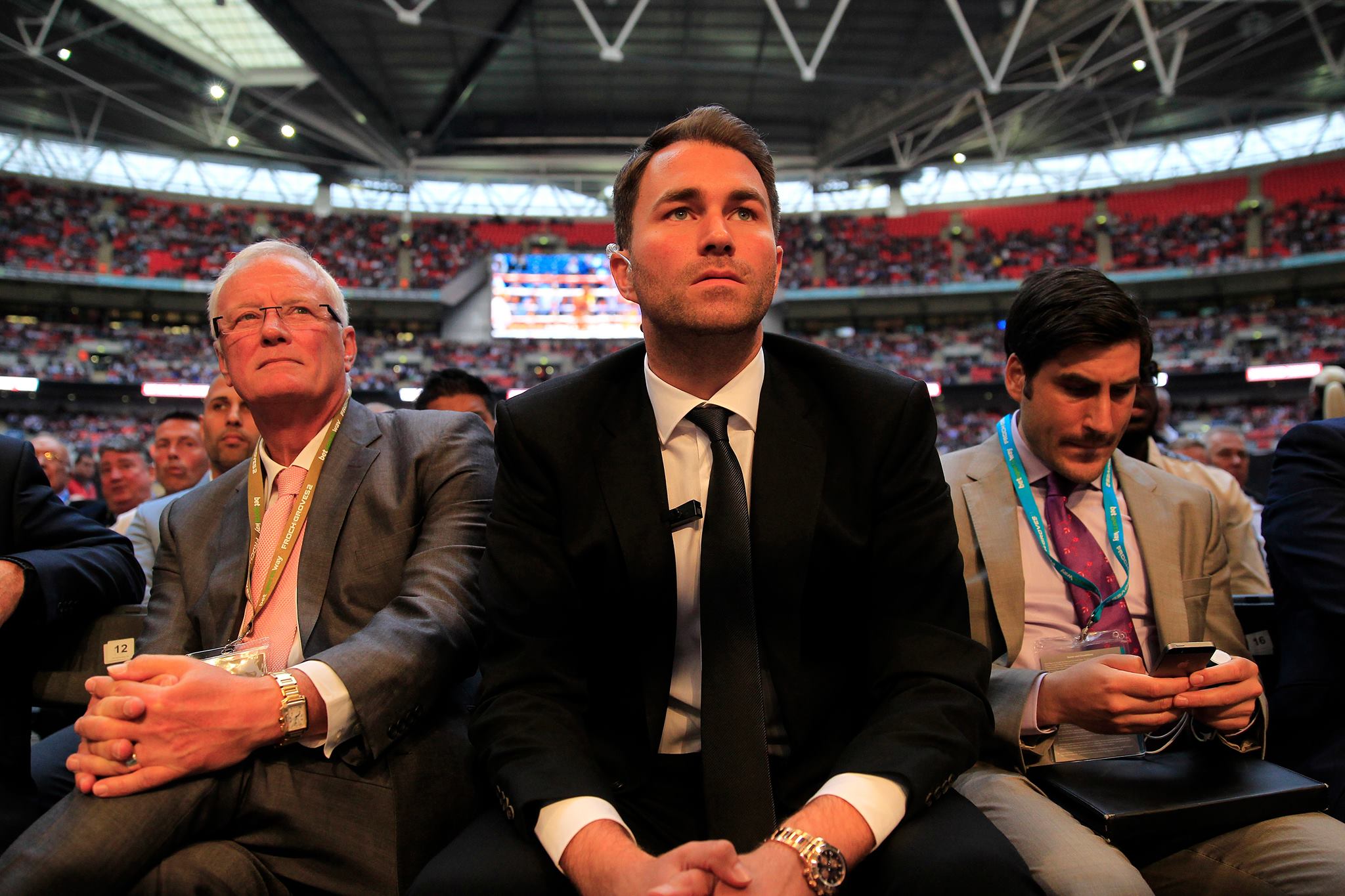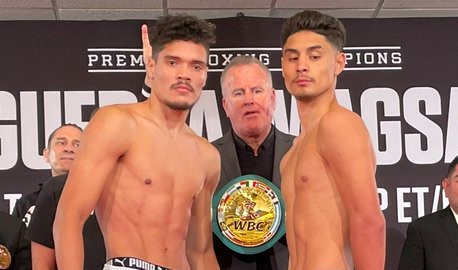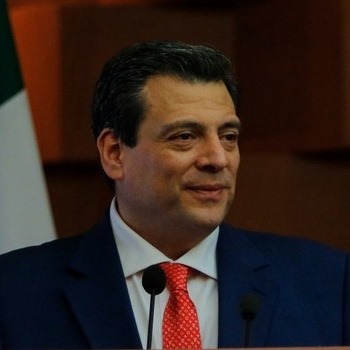By Zack Arnold Fight Opinion
There is something to be said about the current bonus structure in UFC. Fighters can be rewarded with bonus money for Fight of the Night and for other award categories. The bonus system is an easy way for UFC to control contractual costs with talent by giving incentives for fighters to perform at their best level.
The positive aspect about UFC’s bonus structure is that the money is available for any fighter to obtain. This is not a case of one fighter supposedly getting a certain kind of bonus if they kept the fight a standing-only bout, such as Seth Petruzelli unfortunately indicated during his radio interview a few months ago on a Orlando radio station when discussing his win over Kimbo Slice in Elite XC. In the stand-up scandal that caused damage for Elite XC’s future, accusations of a fighter getting paid to act a certain way raised a lot of eyebrows and rightfully so.
For UFC, their bonus structure has rewarded fighters of all stripes – strikers, submission artists, wrestlers, and mostly any style. The accusation that UFC favors C-level sloppy kickboxing had, for the most part, been inaccurate. That was, until, UFC 93 took place last weekend in Dublin, Ireland. Strangely, the main storyline heading in a largely boring UFC 93 card was the fact that undercard fighters Chris Lytle and Marcus Davis were pounding their bests in the broadsheet media claiming that they were going to have the greatest stand-up war of all time, that they were going to aim for Fight of the Night bonus money, and that it would be a memorable brawl. Just read some of the comments made in interviews with Eurosport online. Immediately, the cat-calls rang out that this was a perfect example of UFC encouraging sloppy C-level kickboxing.
During the week of hype leading up to UFC 93, UFC President Dana White made an unintentionally funny comment when he stated that Kevin Iole was touting the Davis/Lytle fight as a fight to look forward to, an exciting fight, a great fight. So why was a midcard fight between two fighters who had boxing experience being heralded as the next coming of Forrest Griffin vs. Stephan Bonnar? It didn’t take MMA fans long to figure out what message was being sent — the fighters understood that they had a better chance of winning bonus money if they kept their fight as a stand-up encounter as opposed to going to the ground — EVEN IF GOING TO THE GROUND MEANT WINNING THE FIGHT.
The irony of the stand-up war proclamations from both Davis and Lytle is that Jorge Gurgel, a former UFC undercard fighter, was the fighter who hammered the message home the most that if you kept fights standing up and didn’t go the ground that you, too, could win big Fight of the Night bonus money from UFC. Despite being cut from UFC, Gurgel made enough money from bonuses accumulated on undercard fights that he will not have to financially worry about being temporarily out of a job. For many UFC undercard fighters, the salaries they make barely cover the cost of nutritional supplements, coaches, and training partners. The bonus money means significantly more for undercard fighters than it does for the top guys.
There is an interesting parallel developing in UFC’s matchmaking philosophy. For many of the undercard fighters who are struggling or know in their heart that they won’t make it to the top of the mountain, it seems as if that obtaining the most amount of bonus money is the #1 goal. Fighters like Gurgel, Davis, and Lytle have sent a clear message to other competitors that if you want to gain the most attention, you keep fights standing up even if your striking is sloppy. Meanwhile, for the top fighters in UFC, it’s all about winning or losing. If you win, you continue to make big money. If you lose and your base salary is high, you get cut. Dana White recently claimed that there are over 15 UFC fighters who are millionaires. He’s done a brilliant job of controlling how the money flows from Zuffa to the fighters.
Another aspect that was recently discussed in regards to maintaining financial control over fighters was recently discussed by Robert Joyner at the MMAPayout.com web site. Joyner recently talked about UFC considering offering 360 deals, which are contracts that essentially give UFC rights over multiple aspects of a fighter’s professional life — their fight money, their sponsorship deals, and any other business venture they get involved with. This type of contract is similar to what is offered in the music industry. UFC has masterfully built a WWE-style operation in terms of running their own fight promotion and controlling all creative aspects of it. Now they want to adopt business practices that are similar to the record industry. 360 deals could, in theory, eliminate much of the power that agents would have in the fight business. It would concentrate more power in the hands of UFC and Dana White. So much for being an independent contractor.
“I understand survival. I understand business,” exclaimed columnist Alan McGee in The Guardian newspaper in October of 2007 about the usage of 360 deals in the music business. “I understand it is not always win/win as it should be. I understand some lose and some win. But I don’t understand raping and pillaging in business.”
What would the impact of 360 deals have on the MMA industry? UFC is already the king of American PPV. Now they want to be the king of controlling corporate sponsorship and any MMA-related tie-in that a fighter has. The choice is simple for a fighter — do I sign the deal and make a little bit of money in exchange for giving away all of my rights, or do I hold out and perhaps not get signed or pushed as hard by UFC because they don’t have a complete financial stake in my success? What makes the reported interest by Zuffa in 360 deals interesting is that the primary industry that uses these deals are companies in the recording industry, an industry that is bleeding cash from CD sales and file sharing of music online. UFC, meanwhile, just came off of a big PPV event featuring Brock Lesnar and Randy Couture. They had reportedly another big PPV buyrate with Forrest Griffin vs. Rashad Evans on December 27th. By implementing 360 deals and controlling the bonus structure that fighters are encouraged to strive for, UFC is going for the jugular in a big way. They want to eliminate any middlemen (read: agents) in their path and control everything in MMA.
Even Vince McMahon would blush at what is going on right now.



















LarryFex
06/25/2024 at 5:15 am
pin up az?rbaycan: pin up casino azerbaycan – pin up apk yukle
Richardled
06/26/2024 at 9:01 am
reputable mexican pharmacies online [url=https://northern-doctors.org/#]Mexico pharmacy that ship to usa[/url] best online pharmacies in mexico
JeffreyMok
06/26/2024 at 1:55 pm
https://northern-doctors.org/# medicine in mexico pharmacies
Williamfrumn
06/26/2024 at 2:28 pm
mexican rx online: mexican pharmacy online – pharmacies in mexico that ship to usa
Richardled
06/26/2024 at 4:36 pm
mexico drug stores pharmacies [url=http://northern-doctors.org/#]northern doctors pharmacy[/url] buying prescription drugs in mexico
Richardled
06/26/2024 at 11:04 pm
medication from mexico pharmacy [url=http://northern-doctors.org/#]mexican pharmacy online[/url] mexican border pharmacies shipping to usa
Williamfrumn
06/27/2024 at 12:11 am
medicine in mexico pharmacies: northern doctors pharmacy – medicine in mexico pharmacies
Williamfrumn
06/27/2024 at 2:05 am
mexico drug stores pharmacies: northern doctors – mexican mail order pharmacies
Williamfrumn
06/27/2024 at 3:55 am
medication from mexico pharmacy: Mexico pharmacy that ship to usa – medicine in mexico pharmacies
JeffreyMok
06/27/2024 at 7:25 am
https://northern-doctors.org/# mexican online pharmacies prescription drugs
Williamfrumn
06/27/2024 at 7:36 am
buying prescription drugs in mexico: Mexico pharmacy that ship to usa – buying prescription drugs in mexico online
Richardled
06/27/2024 at 8:25 am
mexico pharmacies prescription drugs [url=https://northern-doctors.org/#]Mexico pharmacy that ship to usa[/url] buying from online mexican pharmacy
Williamfrumn
06/27/2024 at 9:30 am
mexico pharmacy: northern doctors pharmacy – п»їbest mexican online pharmacies
Williamfrumn
06/27/2024 at 4:46 pm
reputable mexican pharmacies online: northern doctors pharmacy – mexican pharmacy
Richardled
06/27/2024 at 5:44 pm
mexican border pharmacies shipping to usa [url=http://northern-doctors.org/#]northern doctors pharmacy[/url] best online pharmacies in mexico
JeffreyMok
06/27/2024 at 5:49 pm
https://northern-doctors.org/# mexican drugstore online
Williamfrumn
06/27/2024 at 6:27 pm
medicine in mexico pharmacies: mexican northern doctors – mexican pharmaceuticals online
Williamfrumn
06/27/2024 at 8:07 pm
mexico drug stores pharmacies: mexican northern doctors – mexico pharmacy
JeffreyMok
06/27/2024 at 8:17 pm
http://northern-doctors.org/# mexico pharmacy
Williamfrumn
06/27/2024 at 9:49 pm
pharmacies in mexico that ship to usa: mexican mail order pharmacies – mexican pharmaceuticals online
JeffreyMok
06/27/2024 at 10:58 pm
https://northern-doctors.org/# buying prescription drugs in mexico online
Williamfrumn
06/27/2024 at 11:32 pm
buying from online mexican pharmacy: mexican pharmacy – buying prescription drugs in mexico
Williamfrumn
06/28/2024 at 1:11 am
pharmacies in mexico that ship to usa: mexican pharmacy online – mexico drug stores pharmacies
Williamfrumn
06/28/2024 at 4:22 am
mexico pharmacies prescription drugs: mexican northern doctors – mexican border pharmacies shipping to usa
Williamfrumn
06/28/2024 at 5:55 am
mexican online pharmacies prescription drugs: pharmacies in mexico that ship to usa – mexican online pharmacies prescription drugs
JeffreyMok
06/28/2024 at 6:49 am
http://northern-doctors.org/# medication from mexico pharmacy
Williamfrumn
06/28/2024 at 9:10 am
purple pharmacy mexico price list: Mexico pharmacy that ship to usa – mexican pharmacy
Williamfrumn
06/28/2024 at 10:51 am
medicine in mexico pharmacies: mexican pharmacy – medication from mexico pharmacy
Richardled
06/28/2024 at 11:31 am
mexican pharmaceuticals online [url=https://northern-doctors.org/#]mexican pharmacy online[/url] purple pharmacy mexico price list
JeffreyMok
06/28/2024 at 12:12 pm
https://northern-doctors.org/# buying prescription drugs in mexico online
Williamfrumn
06/28/2024 at 12:30 pm
medication from mexico pharmacy: mexican pharmacy – mexico drug stores pharmacies
Williamfrumn
06/28/2024 at 2:06 pm
buying prescription drugs in mexico online: mexican pharmacy online – mexican pharmacy
Williamfrumn
06/28/2024 at 3:49 pm
buying prescription drugs in mexico: mexican border pharmacies shipping to usa – mexico pharmacy
Williamfrumn
06/28/2024 at 5:34 pm
mexican border pharmacies shipping to usa: mexico pharmacies prescription drugs – mexico pharmacies prescription drugs
Williamfrumn
06/28/2024 at 7:16 pm
best online pharmacies in mexico: mexican pharmacy northern doctors – mexico pharmacy
Williamfrumn
06/28/2024 at 8:55 pm
mexico pharmacies prescription drugs: northern doctors pharmacy – mexican drugstore online
Williamfrumn
06/28/2024 at 10:35 pm
medication from mexico pharmacy: northern doctors pharmacy – п»їbest mexican online pharmacies
Williamfrumn
06/29/2024 at 12:12 am
mexico pharmacies prescription drugs: mexican drugstore online – buying prescription drugs in mexico
Ronnienop
06/29/2024 at 2:17 am
pharmacies in mexico that ship to usa [url=https://cmqpharma.online/#]online mexican pharmacy[/url] buying from online mexican pharmacy
Jeffreyber
06/29/2024 at 3:53 am
http://cmqpharma.com/# mexican online pharmacies prescription drugs
mexico pharmacy
Stephenrhype
06/29/2024 at 8:37 am
mexico drug stores pharmacies: cmq pharma mexican pharmacy – mexico drug stores pharmacies
DonaldBiono
06/29/2024 at 4:21 pm
mexican border pharmacies shipping to usa
http://cmqpharma.com/# mexico drug stores pharmacies
mexico drug stores pharmacies
Jeffreyber
07/02/2024 at 3:19 am
https://cmqpharma.com/# medication from mexico pharmacy
mexico pharmacies prescription drugs
Davidtoows
07/20/2024 at 1:46 am
canadian family pharmacy: canadian compounding pharmacy – best canadian online pharmacy
Davidtoows
07/20/2024 at 6:43 am
www canadianonlinepharmacy: canadian pharmacies comparison – online pharmacy canada
EdwardLoobe
07/20/2024 at 7:14 am
https://canadapharmast.online/# reputable canadian pharmacy
Davidtoows
07/20/2024 at 11:46 am
purple pharmacy mexico price list: mexican border pharmacies shipping to usa – mexican rx online
Davidtoows
07/20/2024 at 5:31 pm
canadian drug: canadian pharmacy – canadian pharmacy com
Davidtoows
07/20/2024 at 10:32 pm
india pharmacy mail order: online pharmacy india – mail order pharmacy india
CharlesRor
07/21/2024 at 2:50 am
online shopping pharmacy india [url=http://indiapharmast.com/#]Online medicine home delivery[/url] top online pharmacy india
Davidtoows
07/21/2024 at 3:45 am
canadian pharmacy no rx needed: canadian pharmacy online reviews – canada pharmacy 24h
Davidtoows
07/21/2024 at 8:35 am
online pharmacy india: reputable indian online pharmacy – online pharmacy india
EdwardLoobe
07/21/2024 at 9:38 am
http://indiapharmast.com/# pharmacy website india
Thomaskef
07/21/2024 at 5:37 pm
http://ciprodelivery.pro/# antibiotics cipro
Jamesjam
07/21/2024 at 11:26 pm
how to buy amoxicillin online: can you purchase amoxicillin online – amoxicillin 500mg pill
Thomaskef
07/22/2024 at 1:46 am
http://doxycyclinedelivery.pro/# cost of doxycycline prescription 100mg
Thomaskef
07/22/2024 at 9:38 am
https://clomiddelivery.pro/# where to buy clomid online
Jamesjam
07/22/2024 at 12:00 pm
ciprofloxacin: buy ciprofloxacin – buy generic ciprofloxacin
Thomaskef
07/22/2024 at 5:34 pm
https://doxycyclinedelivery.pro/# can you buy doxycycline over the counter in india
Thomaskef
07/23/2024 at 1:28 am
https://paxloviddelivery.pro/# Paxlovid over the counter
Thomaskef
07/23/2024 at 8:47 am
http://paxloviddelivery.pro/# paxlovid pill
Jamesjam
07/23/2024 at 1:20 pm
paxlovid india: paxlovid india – paxlovid pharmacy
Thomaskef
07/23/2024 at 3:59 pm
http://amoxildelivery.pro/# where can i get amoxicillin
Thomaskef
07/24/2024 at 12:22 am
http://paxloviddelivery.pro/# paxlovid price
Jamesjam
07/24/2024 at 2:04 am
buy ciprofloxacin: ciprofloxacin generic – п»їcipro generic
Thomaskef
07/24/2024 at 8:34 am
https://clomiddelivery.pro/# where to get generic clomid
Jamesjam
07/24/2024 at 2:48 pm
can i order clomid pills: can i order generic clomid tablets – how to buy generic clomid without prescription